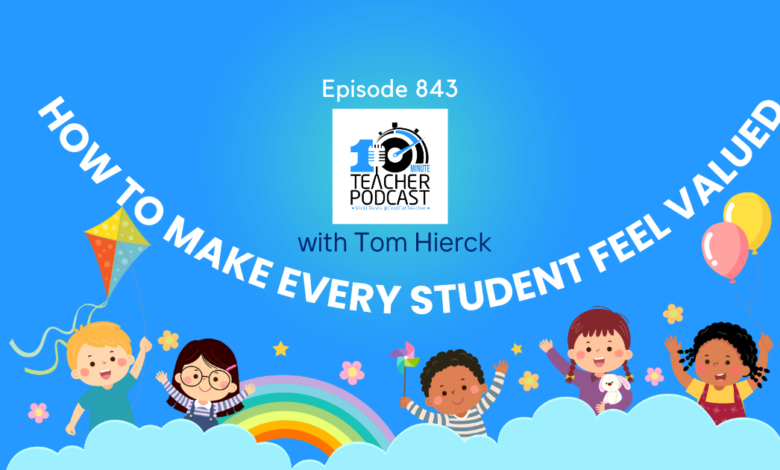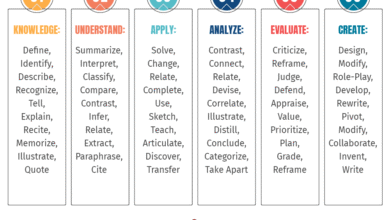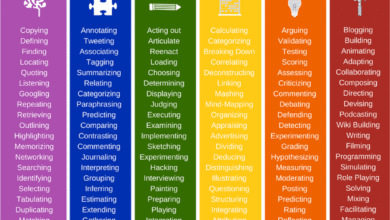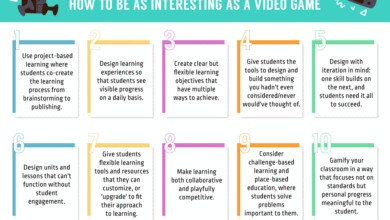How to Make Every Student Feel Valued

Transcript written by Riverside AI and proofed by me. If there are errors, please contact me.
Transcript
Vicki Davis (00:01)
Today we’re talking with Tom Hirke. Tom has been an educator at all levels, as well as a college professor and is co-author of You’re a Teacher Now, What’s Next? We have his co-author Alex Kajatani on the show in a separate episode. thanks for coming on the show today.
Tom Hierck (00:25)
Well, thanks for the invitation.
Vicki Davis (00:26)
Tom, today we are talking about how to build relationships with students and colleagues. this can be a challenge, can’t it?
Tom Hierck (00:34)
Absolutely. It’s a hard part because it doesn’t have a direct measure. You know, if I give you a test, a math test, we know what you got right and wrong. If we start to build relationships, sometimes it’s a slow build, right? And you know, it takes a bit more to get there. It takes a bit more to see the benefits and some people start to do this, you know, this sort of cost-benefit analysis and say, well, I don’t know if it’s worth putting that much time into it if I don’t get something back from it right away.
And that’s what makes it a bit more challenging.
Vicki Davis (01:04)
But if you look at John Hattie’s effect sizes, it always amazes me that the student teacher social interaction, measures higher than their academic type relationship.
Tom Hierck (01:19)
I think, you know, it’s all about comfort. It’s all about creating a sense of belonging. You know, you reference Hattie’s work. We can go back even further and reference Maslow’s work. Right? People always see Maslow represented as a pyramid. I like seeing it as a staircase, as colleagues Crown Apple and Cobb showed, where the third step in that staircase is the critical one. That’s the step called belonging. If we create a sense of belonging,
Vicki Davis (01:28)
Mmm, yeah.
Tom Hierck (01:45)
That’s the key to achievement, to self-actualization. Again, people don’t invest much in it because it’s a bit more esoteric and they don’t necessarily see the immediate bang for the buck. It takes time, but we know every measure, once a kid feels like they belong, will skyrocket. Literacy rates, numeracy rates, attendance, office referrals will be down, social interactions will be up. Isn’t that what we want in every school?
Vicki Davis (02:06)
Yes.
Hmm
Yes, absolutely. So where do we start with building those relationships, Tom?
Tom Hierck (02:21)
You know, for me there’s a couple of simple things. I’m a big fan of how important language is. And so when I get to work with colleagues, I talk about this notion. When kids come to school, they’re coming to our house. It’s the only house over which we have any sway. I’m tired of lamenting what happens in that other house they live in. I have no power over that. But when you come to school, you’re coming to our house. You’re going to get all these wonderful surrogate moms and dads.
who are going to love you up, who are going to build effective relationships, who are going to guarantee that you will become a reader, a writer, a mathematician, a self regulator. You’ll discover your unique gifts. Right? We’ve got to be looking at this extended experience we call school. It’s a 13 year experience to help us make, prepare fabulous adults. It’s not about you learning the quadratic formula so that you can memorize it.
It’s not about learning the average rainfall in the Amazon basin. It’s becoming a valuable, viable member of your community as an adult, regardless of the role you’re going to play in that community.
Vicki Davis (03:28)
You know, sometimes you will get parents who push back and say, okay, you’re not a parent, you are a teacher. And yes, we do partner with parents, but the truth is sometimes kids spend more time with us, their teachers, than they spend at home during the school year. Yeah.
Tom Hierck (03:41)
You do absolutely right. You know, and that whole notion of who’s involved and I’m not trying to supplant the parent, I’m not trying, but again, go back to that language. I’ve never had any problem with the kids saying to me, well, I don’t have to do that in my house. You’re right. You don’t. And that’s okay. But when you come here to our house, here’s our It’ll be right. And I think kids get that right away. They don’t have any trouble understanding.
Vicki Davis (03:49)
Right?
Mm.
Tom Hierck (04:08)
It’s only when we start to try and enforce and get these arbitrary rules that kids kind of bristle a little bit and push back.
Vicki Davis (04:17)
So how do we build this relationship?
Tom Hierck (04:20)
And again, you can’t be phony. Right? Kids understand when you’re trying to shine them on. I’ve been in classes that I would describe as extremely rigid. Not incorrect. I know I couldn’t teach that way. But if I go in that classroom, those kids love their teacher. Because their teacher is being genuine and authentic. They know that when I’m in Ms. Davis’s class, there’ll be no elbows on the table. When I get to Mr. Huerk’s class, it’s okay if my elbows.
They get it, as long as we’re being genuine. I go back to what I said earlier, a 13 year experience. We keep hiving off school as if it’s a series of 10 month experiences. And as a result, there isn’t a continuity, right? So when I build these quality relationships, it’s not just me as the grade four teacher, it’s us as the K to 16 that is committed to that. If we happen to work in a school that’s K to 12, we go all the way through.
But whatever our period of time is, we’re all committed to building those effective relationships. It all starts with our desire to learn more about kids, right? And not expect that we have a cookie cutter, every type of one type of kid versus a multitude of. And by the way, it’s the same for our adults. As a leader of a school, as a leader of a district, I need to carve out quality relationships with all the people I’m working with. Well, it’s the same thing.
Vicki Davis (05:26)
Hmm.
Yeah.
Tom Hierck (05:43)
Perhaps my favorite activity, called the DNA activity. Not the DNA I used to teach as a high school science teacher, but the DNA I define as dreams, needs, and abilities. See, I happen to believe that every one of our kids has dreams. Sometimes adults in schools, sometimes adults in homes have crushed their dreams so they no longer want to talk about.
Vicki Davis (05:43)
I’ll never…
share it.
Tom Hierck (06:11)
The needs are often times driven by the other house they live in and sometimes we inherit those at school. Their abilities as unique as the kids themselves. I am sure you would agree, I am sure all of your listeners would agree that we have kids who have abilities that are far beyond what we as adults have. I am excited to be a grandparent of six. Well, two of my grandsons love to skateboard and they think grandpa should go skateboarding with them.
Vicki Davis (06:29)
Yeah.
Ha ha ha!
Tom Hierck (06:39)
What they don’t understand is when you’re in your 60s and you hit the ground, you tend to stay down a little longer than when you’re 10 and you bounce right back up. But let me be clear, they have an ability far beyond mine. We got kids in schools today that have fabulous abilities. So when we find out every kid’s DNA, their dreams, needs, abilities, I don’t just do that as acute activity, I use it to drive instruction, design and delivery. If I find out one of my kids loves monster trucks,
Vicki Davis (06:45)
Yes.
Mm-hmm.
Tom Hierck (07:08)
It’s really easy for me to put the name of a monster truck in the math question. It’s amazing what that does to ConnectKids. Wow! Not only does my teacher know me, but what I like is important.
Vicki Davis (07:13)
Right?
Mm-hmm. Well, I’ll never forget my youngest. He was in middle school, came home one day, And he said, I’m going to love this particular teacher. And I said, well, why is that? What she teaches? Oh, she wanted to talk about Minecraft. Well, what she had done is she had them do like a shield, like the ancient shields, and they had to put things on it that represented what they loved.
And she went around and talked about what the students loved. So she had engaged in a whole conversation, hadn’t taught a thing. She talked about Minecraft and I went the next year and now the first day of every class, I call my room Masterpiece Theater because they’re a masterpiece made before time began for good works. And so I have them, write something or draw something in Nearpod that
makes them a masterpiece that is their best thing they do But the relationships it builds on day one, because we established that bond as I go through and talk to each of them about what they’re passionate about, um, is incredible.
Tom Hierck (08:12)
Yeah.
And again, the more we know about these things, the assets kids bring, the more we can start to construct the environments. Now listen, I don’t wanna leave anyone with the impression that that’s all it takes, right? We know we’ve got some kids that are coming from very difficult situations. We know we have some kids in schools today that have experienced, witnessed things.
that would buckle us to our knees as adults. So just being nice the first time doesn’t necessarily break through. There was a study done at the University College of London about a decade ago that talked about how long it takes to establish a new behavior. And the range was 18 to 254 days. Listen, I think most schools have a 254 day kid in there.
Vicki Davis (08:45)
Hmm.
Right.
Wow.
Tom Hierck (09:08)
254 day kid doesn’t light up the first time. You are genuinely and authentically nice. Because they’ve seen adult nice, usually as a precursor to adult manipulation. So they don’t necessarily buy it. Now, we have to be thinking, why are we doing what we’re doing? Are you being that way? You’re the good morning person. Is it because that’s authentically you or is it because you’re trying to get something?
Vicki Davis (09:19)
Ooh, yeah, that hurts.
Hmm.
Mm-hmm.
Uh-huh.
Tom Hierck (09:37)
Because if you’re trying to get something, kids sniff that out pretty quickly. And they say, ah, you know what? Give her a week. After a week, she’ll be tired of saying good morning to you, and then she’ll get annoyed. Kids know. 254 days, kid. Right? It’s going to take a bit of time before we get there.
Vicki Davis (09:45)
Hmm.
Or they’ll test you, won’t they? Yeah, yeah. So Tom, if you could travel back in time and talk to Tom Hierck the first day of teaching, what would you tell yourself that first day of teaching about building relationships with your students?
Tom Hierck (10:02)
Yeah.
that there’s nothing more important. Right. I think I came out of teacher education, teacher training with the one thing that was drilled into my head was that the best learning environment was the deadly silent classroom, right. Where you could hear a pin drop. That’s what we had to strive for. And I think I so bought that.
that I spent more time in my first year clamping down on being negative about genuine enthusiasm my kids were displaying so that I could achieve that goal. It never felt right. So if I could go back in time, that’s what I would say. My mantra over the years has become really crystalized and clear for me. Every student’s a success story waiting to be told.
Vicki Davis (11:00)
Cool.
Tom Hierck (11:01)
And so that’s what I believe. That’s what drives me today. That’s what drives me in my work with teachers. So it drives when I write, what do I believe is possible? And so I’d go back and tell first year, Tom beginning a teacher, Tom, Hey, it’s okay, that little disruption at the side. That’s all right. That’s an indicator of when kids start to feel really comfortable, they’re going to get a bit more, right? Recognize a beautiful noise. Rather than.
recognizing only absolute silence.
Vicki Davis (11:32)
What would you have warned yourself about the biggest mistakes you think you ended up making?
Tom Hierck (11:38)
Yeah. I think I would do is recognize this. I’ve yet to meet a kid who got better through consequence alone. Right? And when I say that I want people to understand I’m not opposed to consequence, but consequence has to be paired with instruction if we’re hoping for a breakthrough.
Right. And I know it’s frustrating. Uh, again, this, this quality of relationship we build, but for me to simply say, Vicki, stop calling out in class day after day, can we agree that’s not working because you keep calling out and I keep losing it. And then I want to assign you consequence. What I ought to be doing is tying it back to an expectation. And why is that expectation important? Right. If we’re going to build it off a foundation of respect.
then let’s talk about what does respect look like. And let’s make sure, by the way, we’re modeling it. As the adults, if you don’t model what you expect, you should expect what you model. In schools everywhere, the eyes are on us always. Kids are watching. We say do things, and they watch, and they say, wait a minute, those two adults in the building don’t seem to like each other. They don’t greet each other. They don’t treat each other respectfully.
maybe this isn’t such a deep expectation. So that whole notion of how do we help kids through consequence plus instruction. I think the job of a kid is to find out where the fences are.
If there are no fences, they all become free-range kids. So I think we’ve got to help them become better adults, but that’s the goal, right? After 13 years that they’re ready to take on the next challenge. Not that they are grade four compliant, grade seven compliant, grade 10 compliant, but that we’re steering them towards being valuable, viable members of their communities.
Vicki Davis (13:10)
Hmm.
Love that. So Tom, here, you’re a teacher now. What’s next is the book. A lot of wisdom here, Tom,
But here’s the thing if kids genuinely know you care and you demonstrate that with your behavior, and you treat colleagues with respect, which is very important. I always say you’ve got to relate to educate and that’s so much a part of it. So thanks for coming on the show, Tom.
Tom Hierck (13:51)
Beautiful. Thanks for having me, Vicki. Again, thanks for the opportunity to be with you.



